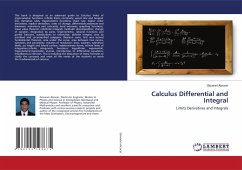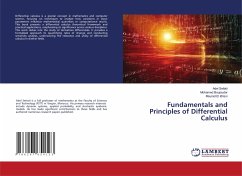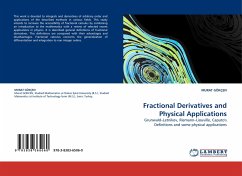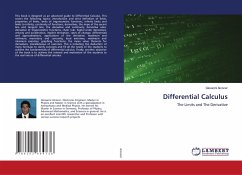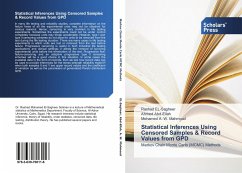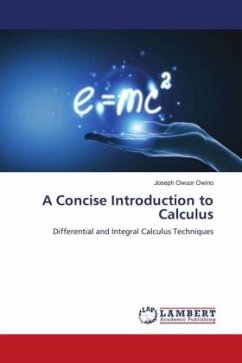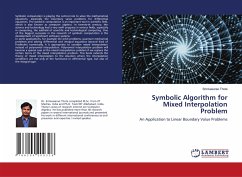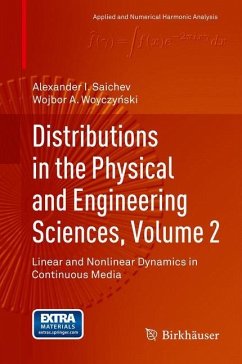
Fractional differential equations & symbolic derivatives and integrals
Power series solutions of fractional differential equations & the nth derivatives and integrals
Versandkostenfrei!
Versandfertig in 6-10 Tagen
34,99 €
inkl. MwSt.

PAYBACK Punkte
17 °P sammeln!
Fractional differential equations (FDEs) are differential equations having fractional derivatives instead of integer derivatives. For completeness, Chapter 2 is an introduction to fractional derivatives and their definitions including a new idea for the fractional calculus which is the idea of finding the fractional derivative of a function f(x) through its power series. Chapter 3 gives some definitions, classifications, and preliminary theories on the subject of FDEs. Chapter 4 covers the subject of some special functions that have been used in this book. Chapter 5 is devoted to solving some ...
Fractional differential equations (FDEs) are differential equations having fractional derivatives instead of integer derivatives. For completeness, Chapter 2 is an introduction to fractional derivatives and their definitions including a new idea for the fractional calculus which is the idea of finding the fractional derivative of a function f(x) through its power series. Chapter 3 gives some definitions, classifications, and preliminary theories on the subject of FDEs. Chapter 4 covers the subject of some special functions that have been used in this book. Chapter 5 is devoted to solving some FDEs by constructing compatible bases for their corresponding Fractional differential operators, and then using these bases to approximate the solution using the power series method. The other main part in this work is the subject of finding the nth derivatives and integrals. The problem can be stated as follows: Given a function f(x), can one find a function f(n; x) that gives the nth derivative of f(x) or the nth integral at any point x? This is the subject of Chapter 6 and 7 which has led to finding unified formulas for the nth derivatives and integrals.






